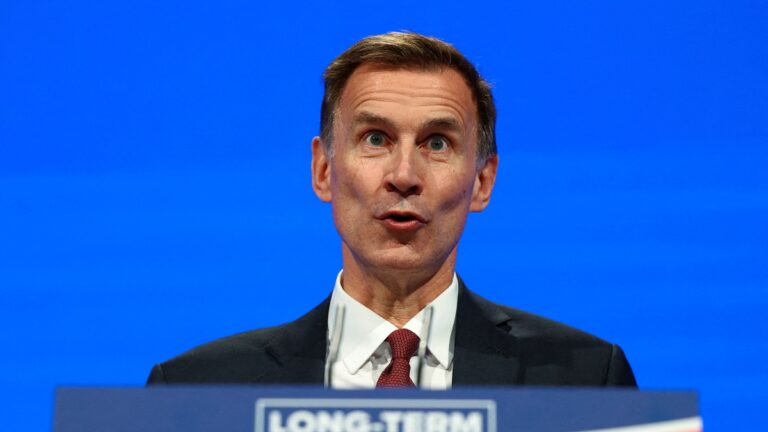News Desk, Kolkata : The United Kingdom is grappling with a slew of challenges, from the potential shutdown of its last steel blast furnaces to a housing crisis that has young adults clinging to their family homes longer than anticipated. Amid these obstacles, the government appears to be clinging to tax cuts as their economic life raft. However, a closer look at the global economic landscape suggests that this may not be the panacea they envision.
The Illusion of Tax Cuts
Chancellor Jeremy Hunt has made it clear that he intends to follow in the footsteps of Nigel Lawson, pushing for tax cuts that are touted as affordable and growth-boosting. This echoes the Conservative government’s commitment to continuous tax trimming, with the aim of positioning the UK for technological and manufacturing growth. Yet, the evidence that tax reductions lead to economic prosperity is thin at best. At worst, it’s a dangerous ideological belief unsupported by hard facts. Success Stories of Public Investment
Across the pond and in the far East, economies are flourishing not because of low taxation, but thanks to high public investment. In the United States and Asia, government-backed initiatives are driving innovation and industrial expansion. The UK could stand to learn from these examples, focusing on increased infrastructure spending and leveraging tools like the UK Infrastructure Bank’s guarantee on private loans for major projects.
The Wealth-Tax Disparity
While the government’s focus on tax cuts persists, an unsettling trend emerges. The wealthy continue to see their wealth rise, yet their tax contributions remain stagnant. This discrepancy begs the question: Is the current tax system truly serving the broader public? A more equitable tax structure could pave the way for substantial public investment, leading to improved public services and potentially a healthier economy. This, in turn, could alleviate the tax burden on ordinary taxpayers in the long run.
Instead of succumbing to a narrow focus on tax reduction, the UK government needs to adopt a comprehensive strategy for economic growth and public welfare. This means considering all the tools at their disposal, including public investment, and not just tax cuts. The future of the UK economy depends on it.
Summary : In the heart of the United Kingdom’s economic strategy lies a contentious dilemma: the relentless tug-of-war between the allure of tax cuts and the imperative for robust public investment. This high-stakes battle is not merely an ideological clash but a pivotal decision impacting the nation’s fiscal health. Advocates of tax cuts argue for stimulating private sector growth and individual prosperity, asserting that a lighter tax burden fuels economic dynamism. On the flip side, proponents of public investment stress the critical need for infrastructure, education, and healthcare funding to fortify societal well-being and foster long-term economic resilience. As the UK grapples with post-pandemic recovery, navigating this economic crossroads demands a delicate equilibrium. Striking the right balance between tax relief and strategic public spending stands as a linchpin in shaping the nation’s financial future, presenting policymakers with a formidable challenge laden with far-reaching consequences. The stakes are high, and the path chosen will echo across the socioeconomic landscape for years to come.
DISCLAIMER
Our news media denounces any form of bias and disapproves of sensationalism. The disseminated news is entirely educational and aimed at social awareness. Our media maintains absolute impartiality, adhering solely to the purpose of education and social consciousness.


